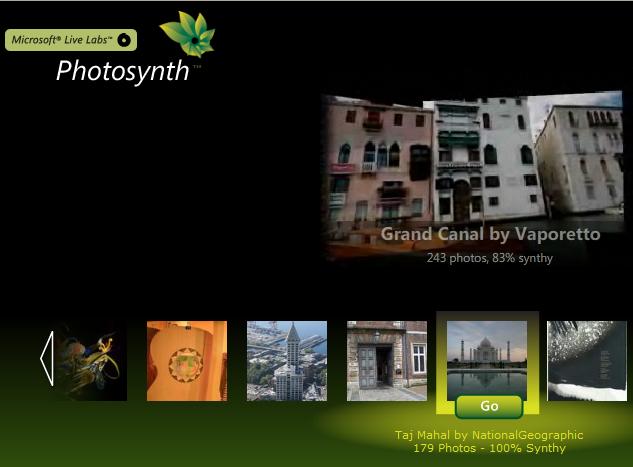Photosynth goes video at Microsoft TechFest
Microsoft stitches vids, 'memories' into feel-good digital duvet

Sign up for breaking news, reviews, opinion, top tech deals, and more.
You are now subscribed
Your newsletter sign-up was successful
Microsoft's annual celebration of innovation, the TechFest, today showcased a development of the company's jawdropping Photosynth service that extends its functionality to video.
Just as Photosynth creates a single enormous panorama out of hundreds of single images, the new technology (as yet named, but if it's not Videosynth, I'll eat my mouse) stitches a High Definition movie out of multiple low res video clips.
"With the kind of mobile video that most people have, you never get too see very much," says researcher Ayman Kaheel. "We aim to enable multiple mobile phones to collaborate in recording an event and then, in real time or near-real time, construct one higher-resolution video from the resulting video streams."
With the ability to be used in near-real time, Kaheel's technology, developed at the Cairo Microsoft Innovation Centre, can supplement Web services that allow live streaming of videos from mobile devices for instant viewing.
Your Facebook page will last forever
Perhaps even more ambitious is an entry from Microsoft's Cambridge campus, called Timecard, that hopes to allow families to communicate, organize and store digital "artifacts" in new ways, potentially for generations.
"The Timecard project provocatively aims to consider the development of technologies that are not built for planned obsolescence, but are built specifically to last and to outlive their owners," says researcher Richard Harper. "Timecard is a device and a service that can create timeline-style records of a person, similar to a 'baby book,' but extending throughout life."
Sign up for breaking news, reviews, opinion, top tech deals, and more.
In a familiar theme, Timecard is part of a larger body of research into how families can connect and share information. Harper and his team have come up with a half-dozen new technologies on display at TechFest today, all designed to explore the digital side of family.
"We're using 3D modeling, devices, display technologies that take advantage of multitouch, and lessons we've learned in studying how families work," Harper says.
Mark Harris is Senior Research Director at Gartner.